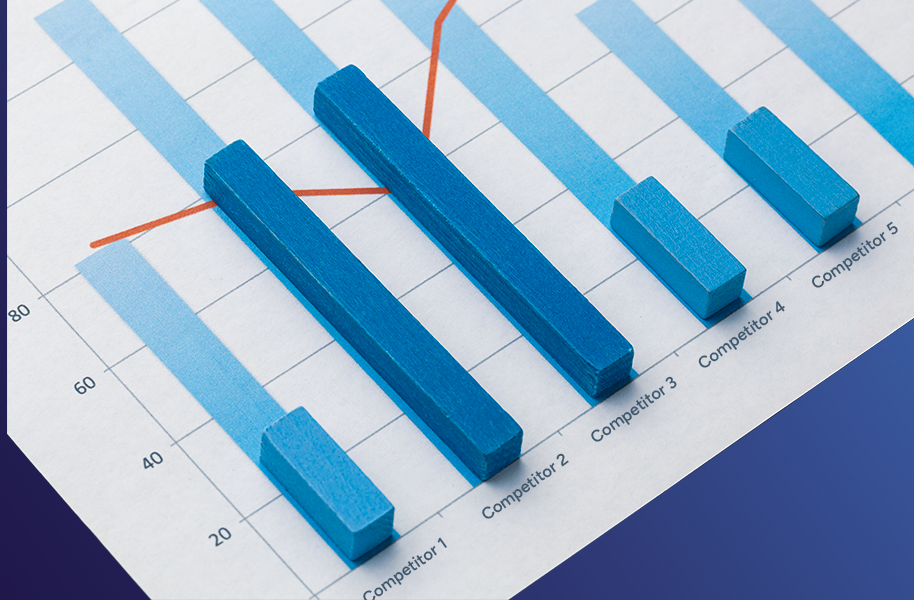Choosing the best from the many investment options can be a daunting task. It often leaves individuals in search of a reliable financial anchor. One such widely embraced trusted option is a fixed deposit (FD). Renowned for stability and minimal risk, an FD holds its position among investment choices for Indian investors who prioritise the safety of their funds.
The flexibility of choosing tenures, ranging from 7 days to up to 10 years, empowers investors to harmonise their financial objectives with the liquidity requirements. Embedded in the history of investment instruments, FDs have stood the test of time. However, does this investment option truly live up to its esteemed reputation? The answers lie ahead.
Table of Contents
ToggleFD features at a glance
FDs come with distinctive features. Here is an overview of the key features:
| Feature | Description |
| Interest Rate | A consistent fixed interest rate throughout the investment tenure. |
| Tenure | It is locked for a predetermined period ranging from 7 days to up to 10 years. |
| Minimum Deposit | Minimal entry requirement with deposits starting at Rs 1,000 (Varies according to institutions). |
| Maximum Deposit | No upper limit, providing flexibility for larger investments. |
| Interest Payout Frequency | Options include monthly, quarterly, annually, or at maturity. |
| Premature Withdrawal | Permissible under certain conditions, subject to penalty fees. |
| Loan Against FD | The facility is available for obtaining loans against the FDs. |
| Overdraft | Certain banks give you an overdraft facility on FDs. |
| Renewal Options | Choices for renewing or withdrawing the deposit at maturity. |
| Tax Implications | Interest and maturity amount are taxable under the Income Tax Act, 1961. Tax-saving FDs offer deductions up to Rs 1.5 lakh under Section 80C. |
| Security | It is generally considered a safe investment with capital protection. |
| Eligibility | It is open to various entities, including resident and non-resident Indians, Hindu Undivided Families (HUFs), sole proprietorship firms, partnership firms, limited companies, trusts, clubs, and societies. |
Benefits of investing in Fixed Deposits
Investing in FDs presents several tangible advantages for the discerning investor:
- Zero-Risk Financial Strategy: FDs offer assured returns, serving as an ideal option for risk-averse investors. The fact that all FDs are insured up to 5 Lakhs by DICGC has bolstered this safety net.
- Fluid Liquidity: Despite their secure nature, FDs offer easy liquidity. With most FDs allowing premature withdrawal (excluding tax-saving FDs), a nominal penalty facilitates quick and seamless closure through online banking portals.
- Enhanced Interest Rates: FDs yield higher interest rates than saving accounts. Some banks extend rates of more than 7% or more, providing a more lucrative alternative for capital growth.
- Establishing Bank Relations: An FD fosters a meaningful relationship with the bank, paving the way for premium services and potential advantages in loan applications. Banking history is often a critical factor in securing favourable deals.
- Tax-Efficient Investment: FD investors can avail of tax benefits under section 80C of the Income Tax Act, deducting up to Rs 1.5 lakh from their taxable income. While there is a mandatory 5-year lock-in for tax-saving deposits the returns are assured
- Loan Accessibility: The ability to secure loans against FDs is a pivotal advantage. Investors can immediately leverage up to 90% of the FD amount through overdraft facilities, providing financial flexibility during emergencies.
- Unwavering Security: FDs stand out for their unparalleled security, safeguarding both principal and accrued interest. Market fluctuations and economic shifts have no bearing on the stability of FD interest rates.
- Senior Citizen Benefits: Senior citizens often enjoy an additional interest rate boost on FDs, further enhancing the appeal for this demographic.
- Steady Income Stream: Particularly beneficial for retirees, FDs can serve as a consistent income source. Interest payouts can be structured periodically—monthly, quarterly, or annually—providing a reliable income stream. You can use a fixed deposit calculator to determine your returns and plan ahead.
Risks of Investing in Fixed Deposits
In addition to benefits, there are a couple of risks to investing in FDs.
- Lock-in Period: While you can withdraw your money by paying a penalty there is a period for which your money is locked in and access to it is limited.
- Withdrawal Penalties: Premature withdrawals, though feasible, incur a penalty. Financial institutions impose a penalty, which reduces the advertised FD interest rate. To circumvent such penalties, consider opting for a loan against your FD.
- Tax Deducted at Source (TDS): Earnings from a fixed deposit are construed as income and are subject to taxation. A 10% Tax Deducted at Source (TDS) is applicable, and 20% if the investor’s PAN details are not available.
- Fixed Interest Rates: The FD interest rates remain stable for the duration of the investment, while providing assurance, this can be a drawback. In case the rates increase you are left with what you initially invested.
Conclusion
An FD is a reliable choice for those who want stability and guaranteed returns on their investments. However, it may come with some drawbacks, like limited access to your funds and the potential for lower returns compared to other options like stocks and Mutual Funds (MFs). It’s important to carefully weigh the pros and cons of a fixed deposit to match it with your financial goals.
Now that you’ve grasped the benefits and risks of FDs, the next step is making a smart decision. Choosing an FD with a trusted bank can help you overcome these challenges and set the stage for a profitable portfolio.




